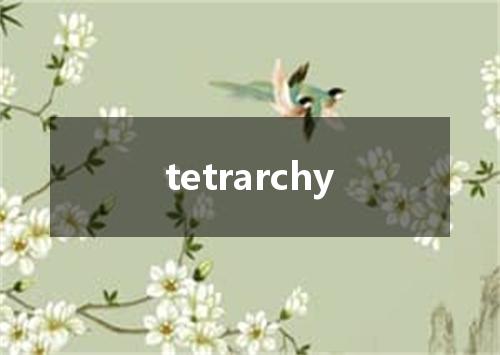tetrarchy

n.
四分领地,四人统治;
英英释义
Tetrarchy
The term Tetrarchy (Greek: "leadership of four [people]") describes any form of government where power is divided among four individuals, but in modern usage usually refers to the system instituted by Roman Emperor Diocletian in 293, marking the end of the Crisis of the Third Century and the recovery of the Roman Empire. This Tetrarchy lasted until c.
以上来源于:Wikipedia
权威例句
Diocletian and the TetrarchyDiocletian and the first tetrarchy, 284–305
The Tetrarchy: policy and image as reflected in imperial pronouncements
Diocletian and the first tetrarchy, A.D. 284–305
THE FIRST GOLD ISSUES OF THE TETRARCHY AT SISCIA
Diocletian, Tetrarchy and the Diocletians palace on the 1700 th anniversary of existence
GALERIUS, MAXIMINUS AND THE TITULATURE OF THE THIRD TETRARCHY
Portrait of a Conspirator: Constantine's Break with the Tetrarchy
Some notable strikes of the Diocletianic tetrarchy in the Zagreb Archaeological museum
The new state of diocletian and constantine: From the tetrarchy to the reunification of the empire
1. A surprising number of customers order the same sandwich every day.
每天点同一种三明治的顾客多得惊人。
来自柯林斯例句
2. It would be surprising were the Mafia not to have muscled in.
如果黑手党不插上一脚,那反倒令人奇怪了。
来自柯林斯例句
3. She'd mentioned it casually once, surprising him by her unconcern.
她曾随口提到过,当时她的冷漠很让他吃惊。
来自柯林斯例句
4. It is not surprising they did so badly in last year's elections.
他们在去年选举中如此糟糕的表现并不奇怪。
来自柯林斯例句
5. A surprising number of ailments are caused by unsuspected environmental factors.
有大量疾病是由不明环境因素造成的。
来自柯林斯例句
[ surprising 造句 ]
